Indigenous Governance Database
Stephanie Russo Carroll
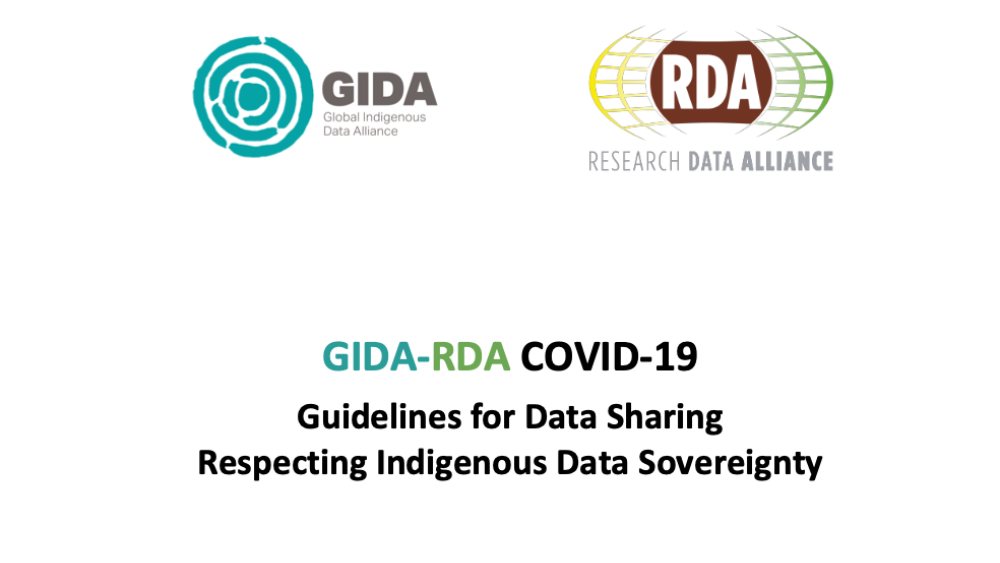
GIDA-RDA COVID-19 Guidelines for Data Sharing Respecting Indigenous Data Sovereignty
Indigenous Peoples around the globe have diverse narratives of resilience and adaptability; however, they are also acutely impacted by the negative social, economic, environmental and health outcomes of COVID-19 (UN Special Rapporteur on the rights of Indigenous Peoples, 2020). As such, it is vital…
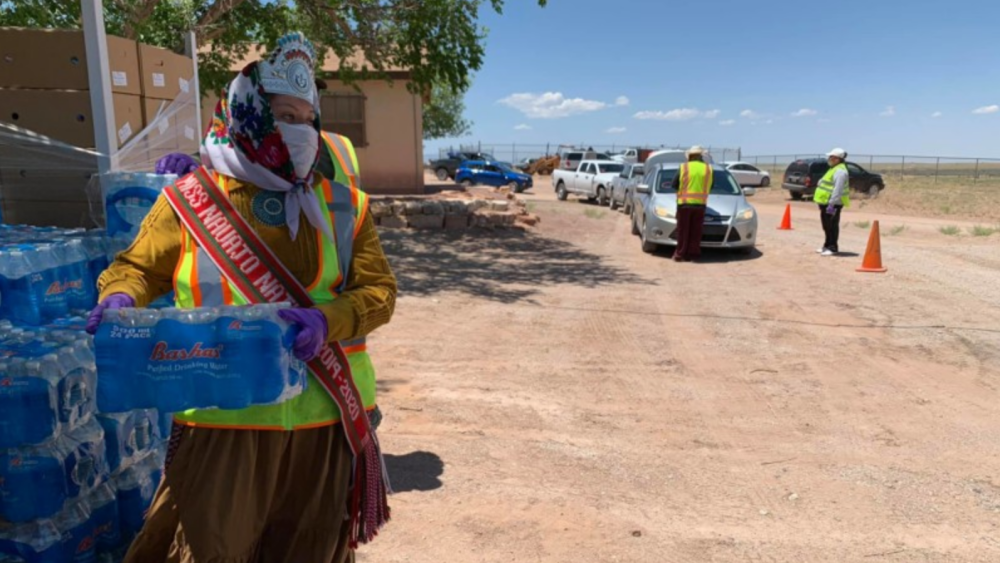
Indigenous Data in the Covid-19 Pandemic: Straddling Erasure, Terrorism, and Sovereignty
On April 10, 2020, Covid-19 case rates on tribal lands were more than four times the rate in the United States.1 Indigenous Peoples across the country continue to be disproportionately impacted by the coronavirus. As of May 18, 2020, the Navajo Nation has the highest Covid-19 case rates surpassing…
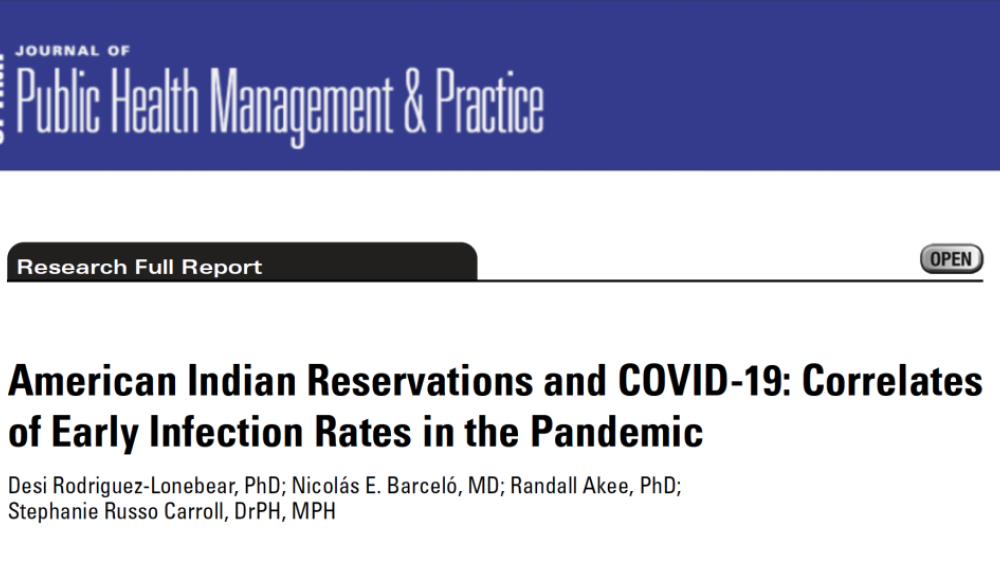
American Indian Reservations and COVID-19 Correlates of Early Infection Rates in the Pandemic
Objective: To determine the household and community characteristics most closely associated with variation in COVID-19 incidence on American Indian reservations in the lower 48 states. Design: Multivariate analysis with population weights. Setting: Two hundred eighty-seven American Indian…
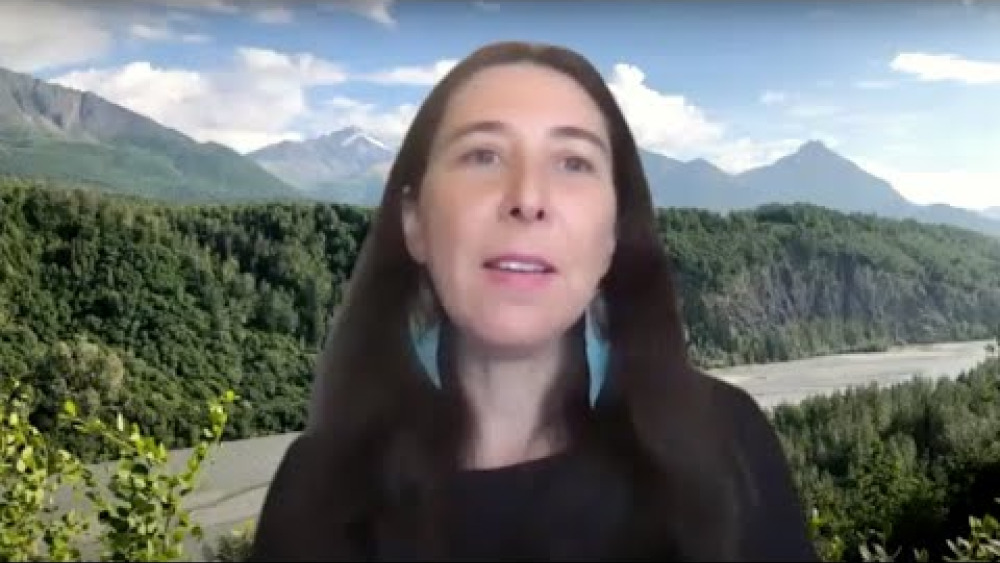
Interview with Dr. Stephanie Carroll about New Research on COVID-19 Spread in Indian Country
Listen to public health researcher Stephanie Carroll, co-author of “American Indian Reservations and COVID-19: Correlates of Early Infection Rates in the Pandemic.” Hear about this new research showing which factors, like household plumbing and language barriers, correlate with a higher spread of…
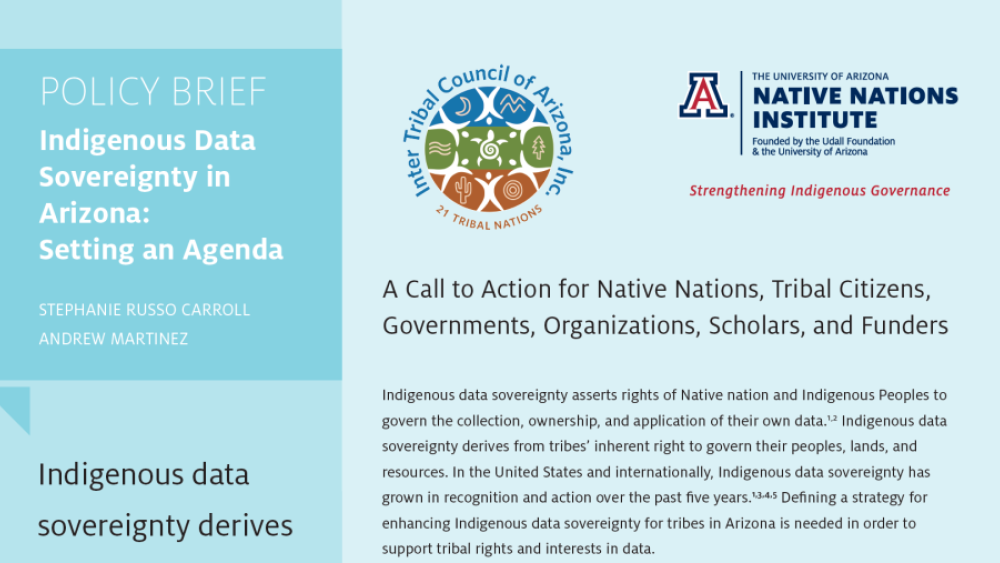
Policy Brief: Indigenous Data Sovereignty in Arizona: Setting an Agenda
Indigenous data sovereignty asserts the rights of Native nations and Indigenous Peoples to govern the collection, ownership, and application of their own data. Indigenous data sovereignty derives from tribes’ inherent right to govern their peoples, lands, and resources. In the United States and…
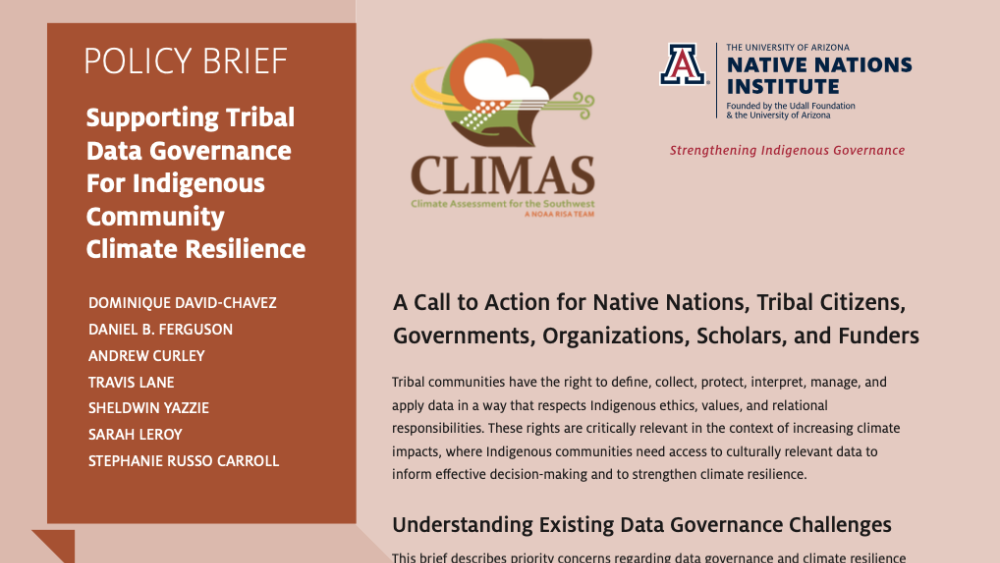
Policy Brief: Supporting Tribal Data Governance for Indigenous Community Climate Resilience
Tribal communities have the right to define, collect, protect, interpret, manage, and apply data in a way that respects Indigenous ethics, values, and relational responsibilities. These rights are critically relevant in the context of increasing climate impacts, where Indigenous communities need…
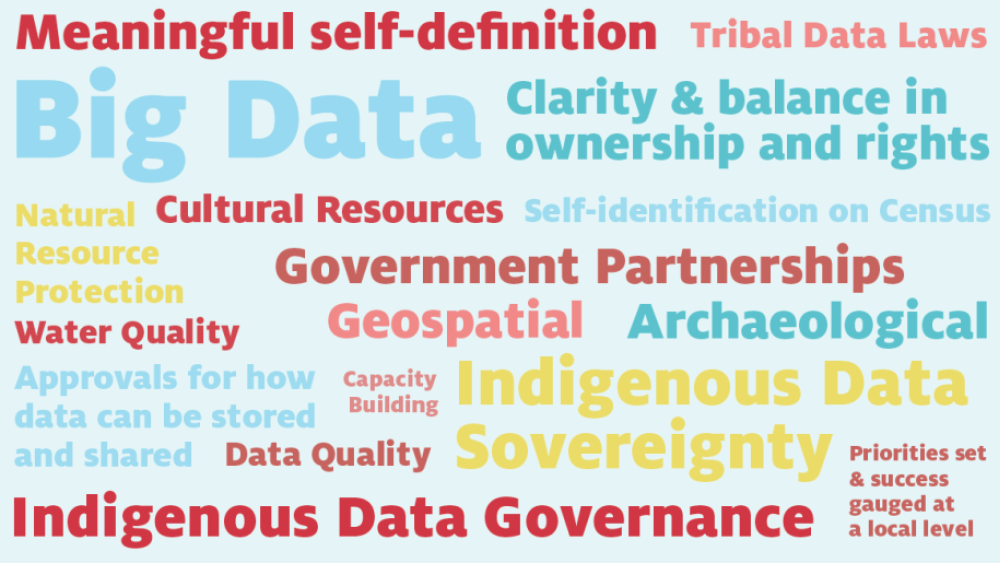
Principles of Indigenous Data Governance
Indigenous data, whether collected by national governments and institutions or gathered by Indigenous Peoples themselves, are integral for: decision-making; the exercise of collective rights to self-determination; the affirmation and application of Indigenous epistemologies; and fulfilling…
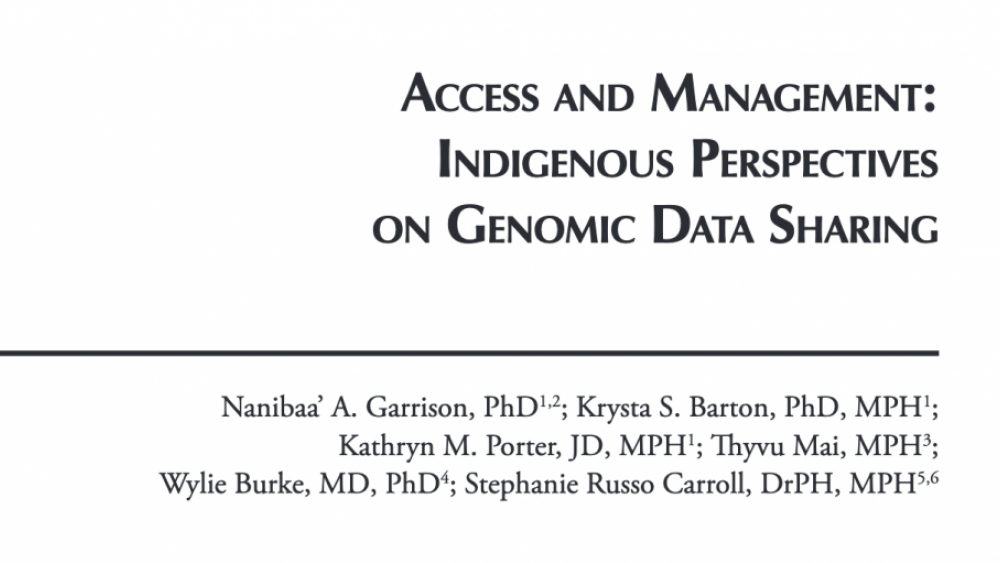
Access and Management: Indigenous Perspectives on Genomic Data Sharing
As genomic researchers are encouraged to engage in broad genomic data sharing, American Indian/Alaska Native/Native Hawaiian (AI/AN/NH) leaders have raised questions about ownership of data and biospecimens and concerns over emerging challenges and potential threats to tribal sovereignty. Using a…
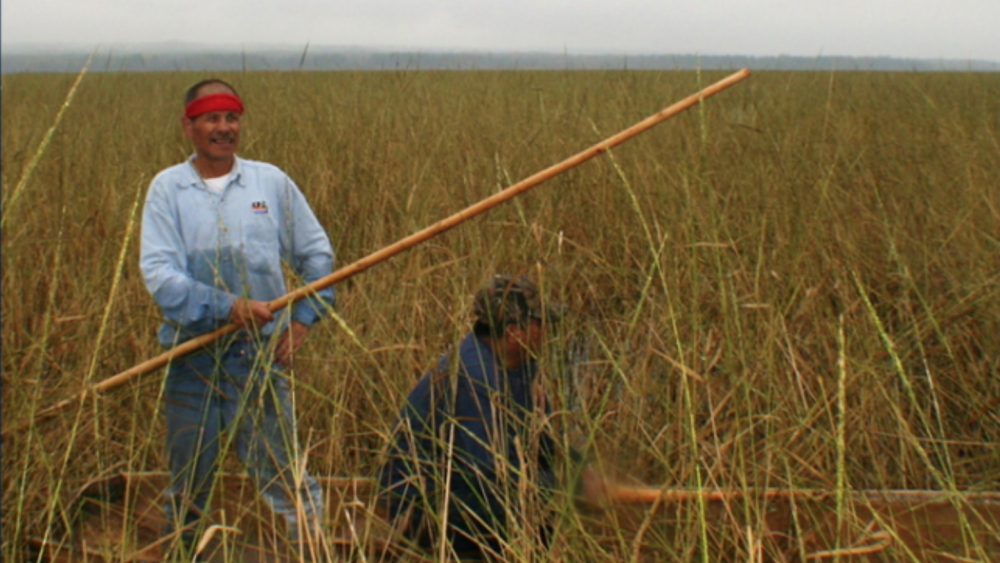
Building an Indigenous Foods Knowledges Network Through Relational Accountability
In recent decades, there has been a movement toward rectifying injustices and developing collaborations between Indigenous communities and mainstream researchers to address environmental challenges that are of concern to Indigenous Peoples. This movement, primarily driven by Indigenous community…
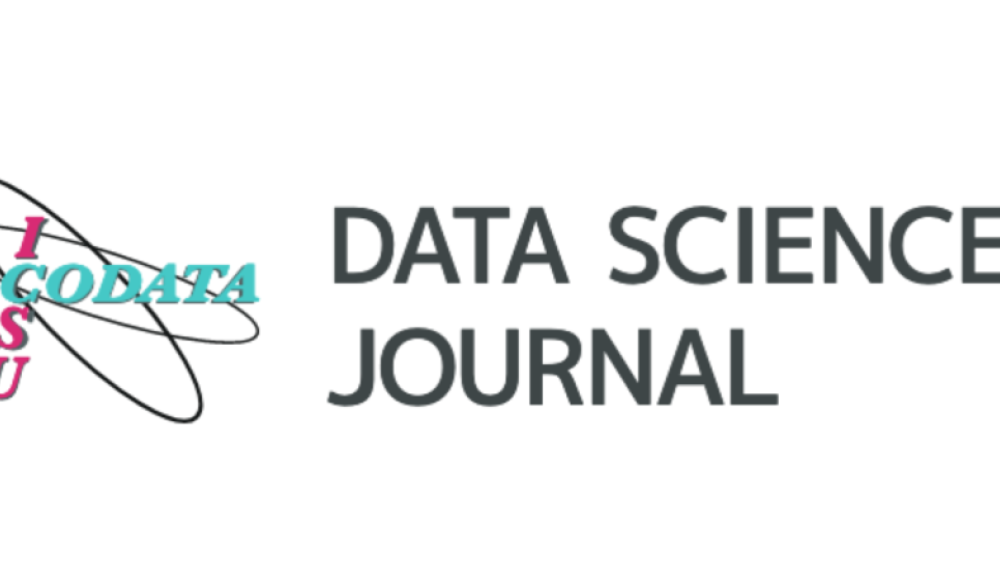
Indigenous Data Governance: Strategies from United States Native Nations
Data have become the new global currency, and a powerful force in making decisions and wielding power. As the world engages with open data, big data reuse, and data linkage, what do data-driven futures look like for communities plagued by data inequities? Indigenous data stakeholders and non-…
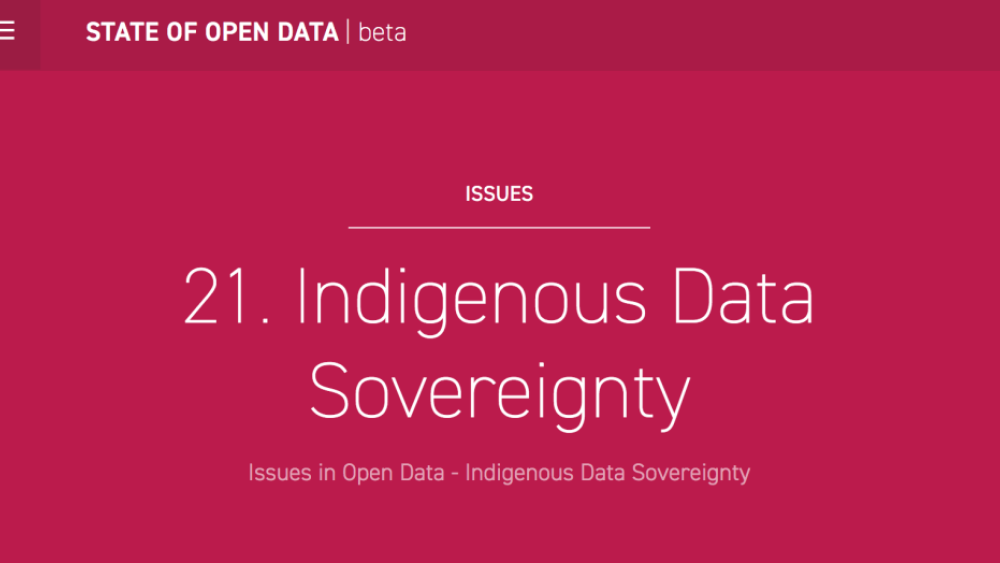
Issues in Open Data: Indigenous Data Sovereignty
Open data in the context of Indigenous peoples is a double-edged sword. Open data is a site of tension for Indigenous peoples. Open data provides opportunities for sustainable development according to Indigenous aspirations, yet also sits at the nexus of current and historic data challenges as a…
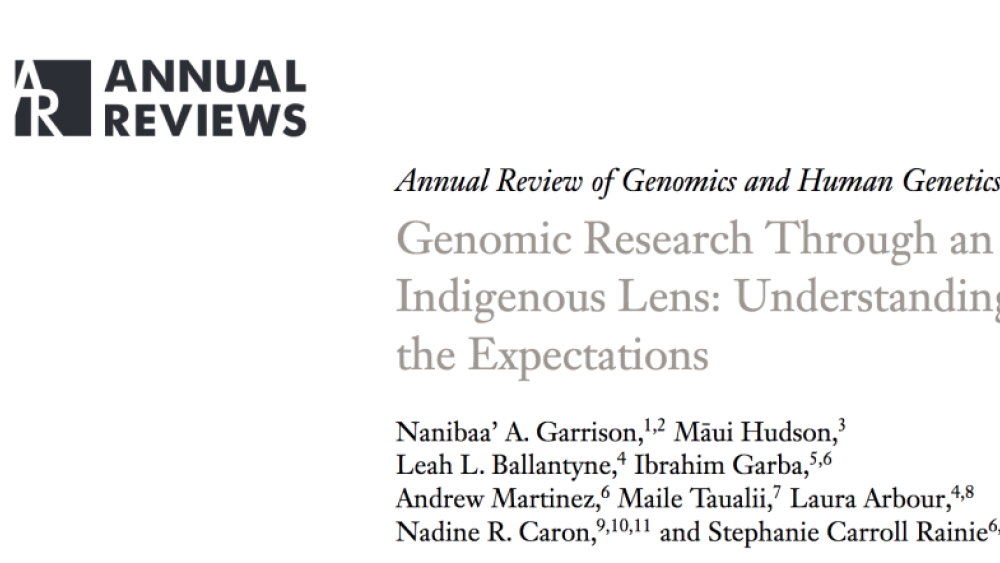
Genomic Research Through an Indigenous Lens: Understanding the Expectations
Indigenous scholars are leading initiatives to improve access to genetic and genomic research and health care based on their unique cultural contexts and within sovereign-based governance models created and accepted by their peoples. In the past, Indigenous peoples’ engagement with genomic research…

Good Data Practices for Indigenous Data Sovereignty
Indigenous Data Sovereignty (IDS) and Indigenous Data Governance are Indigenous-led movements and practices through which Indigenous peoples are setting their own visions for good data regarding data generated and collected by and about them. IDS movements and practices can be seen as a…
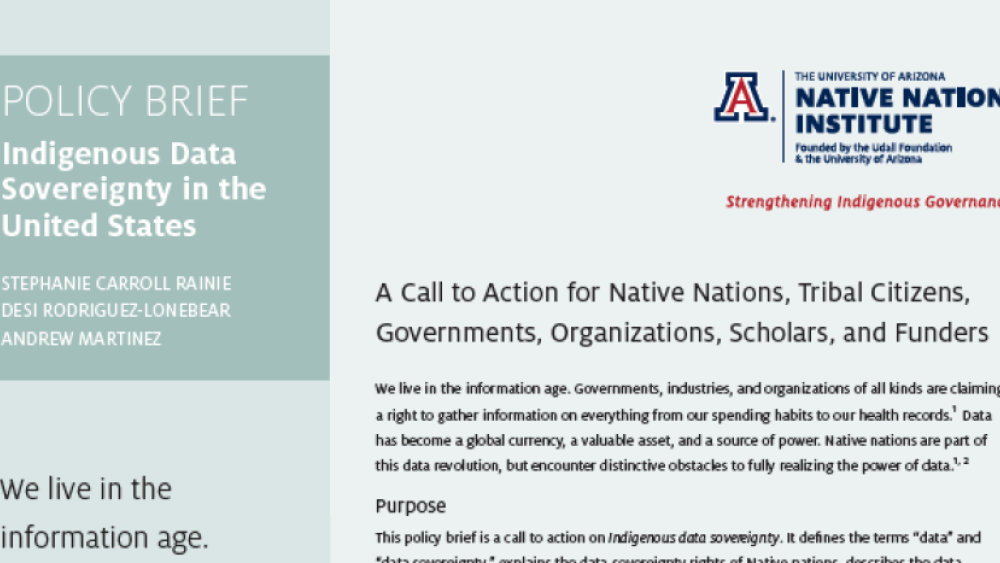
Policy Brief: Indigenous Data Sovereignty in the United States
We live in the information age. Governments, industries, and organizations of all kinds are claiming a right to gather information on everything from our spending habits to our health records. Data has become a global currency, a valuable asset, and a source of power. Native nations are part of…
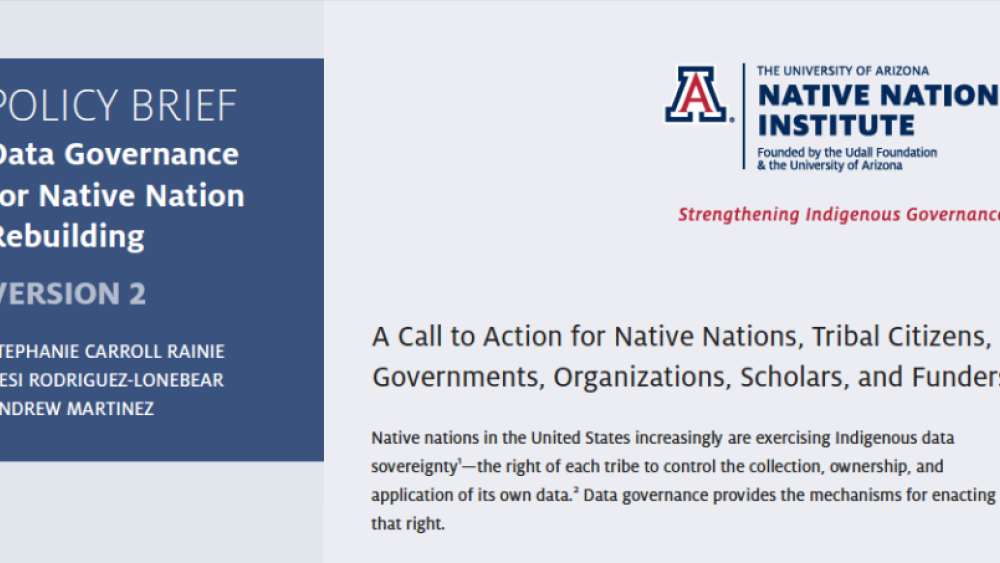
Policy Brief: Data Governance for Native Nation Rebuilding
Native nations in the United States are increasingly exercising Indigenous data sovereignty (ID-Sov)— the right of a nation to govern the collection, ownership, and application of its own data. While ID-Sov is the goal, data governance— the ownership, collection, control, analysis, and use of data…
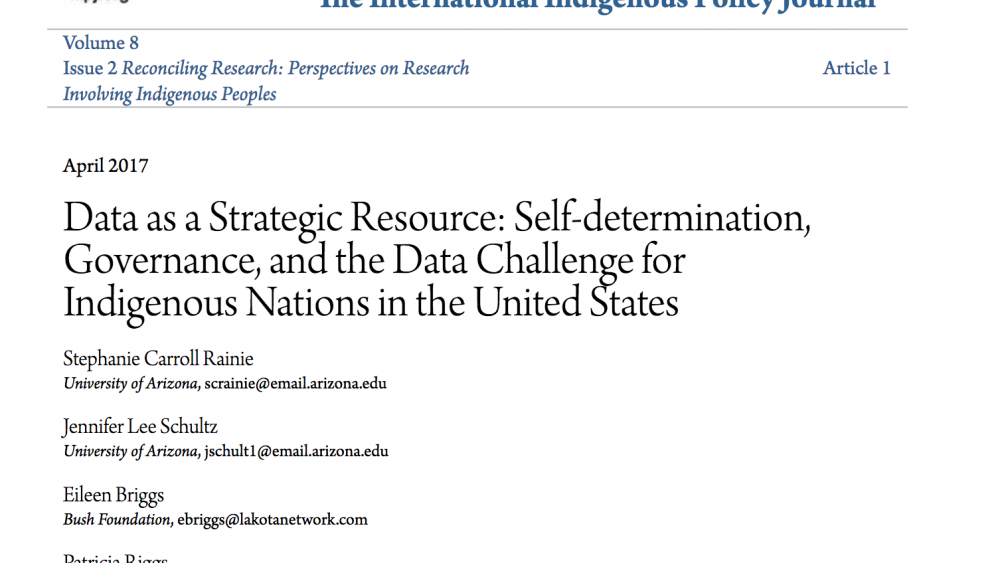
Data as a Strategic Resource: Self-determination, Governance , and the Data Challenge for Indigenous Nations in the United States
Data about Indigenous populations in the United States are inconsistent and irrelevant. Federal and state governments and researchers direct most collection, analysis, and use of data about U.S. Indigenous populations. Indigenous Peoples’ justified mistrust further complicates the collection and…
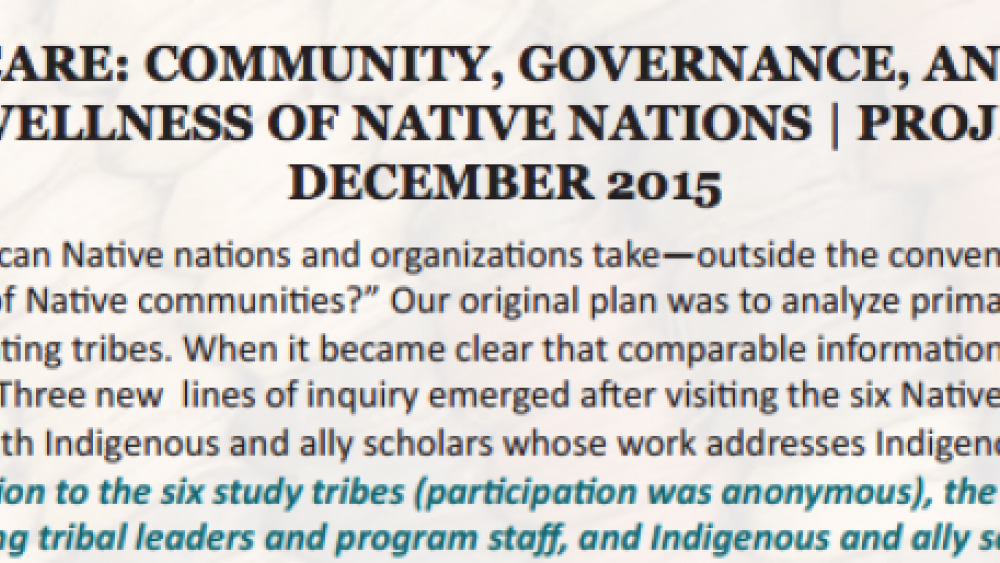
Beyond Health Care: Community, Governance, and Culture in the Health and Wellness of Native Nations. Project Summary
This project asked, "What actions can Native nations and organizations take outside the conventional healthcare system to improve the health and wellness of Native communities?" Three lines of inquiry emerged: DATA SOVEREIGNTY AND DATA GOVERNANCE Data availability and data quality issues limit…
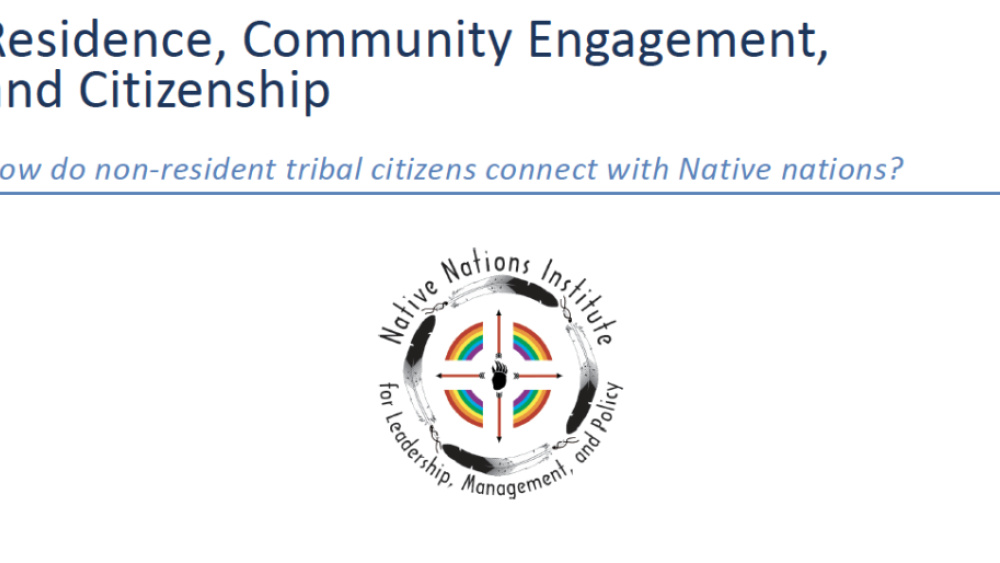
Residence, Community Engagement, and Citizenship: How do non-resident tribal citizens connect with Native nations?
The research draws from an online survey targeted primarily at younger tribal citizens living away from tribal lands; this project provides preliminary insight into 1) non-resident citizens' engagement with their tribes, and 2) the ways tribes might connect more effectively with non-resident…
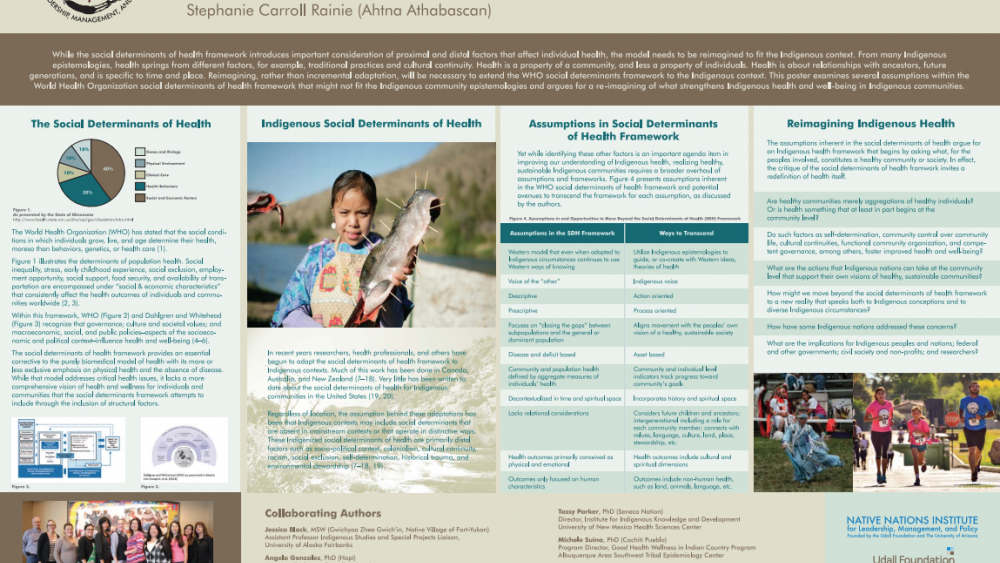
Reimagining Indigenous Health: Moving Beyond the Social Determinants of Health
Senior researcher Stephanie Carroll Rainie critiqued the application of social determinants of health models in Native communities and challenged readers to reconsider how they think about Indigenous health.
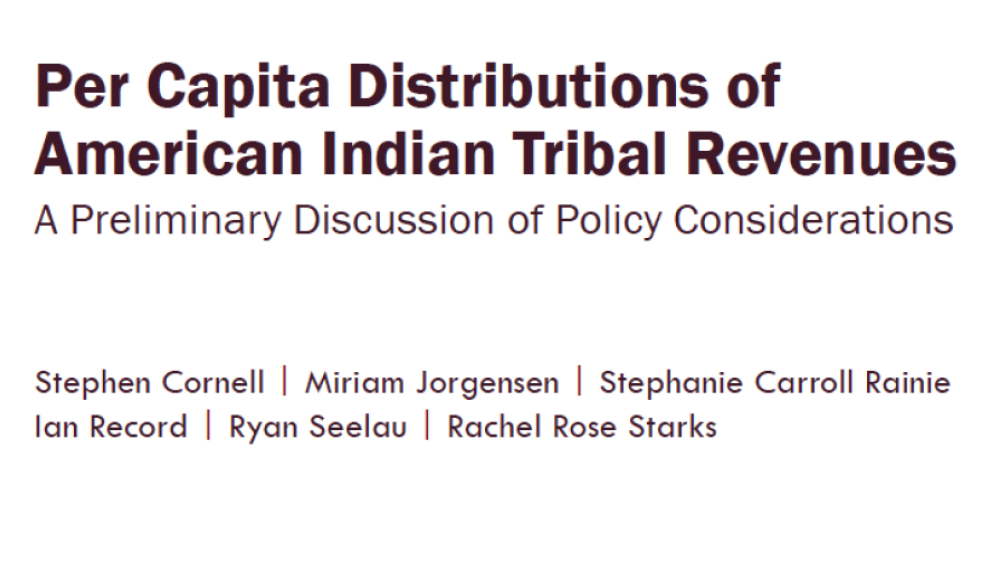
Per Capita Distributions of American Indian Tribal Revenues: A Preliminary Discussion of Policy Considerations
This paper examines policy considerations relevant to per capita distributions of tribal revenues. It offers Native nation leaders and citizens food for thought as they consider whether or not to issue per capita payments and, if they choose to do so, how to structure the distribution of funds and…
